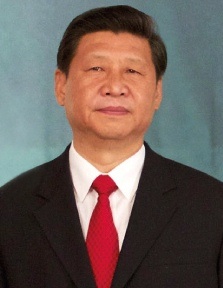
By Danilo Zak
When current Chinese leader Xi Jinping came to power in late 2012, he made some broad, sweeping claims about anti-corruption reform. In his inaugural speech, translated by the BBC, Xi declared that fixing the corruption problem would be central to his tenure. He announced that reducing corruption was the only way to receive genuine support from the populace. Soon, according to a Xihua report, Xi’s government began issuing a list of “dos and don’ts” for politicians, restricting their ability to use government funds on extravagant galas and similar luxuries. In the famous “tigers and flies” speech of January 2014, Xi announced a comprehensive probe that would target corruption on all levels of the political spectrum. He used the Central Committee for Discipline Inspection (CCDI) to begin investigating the widespread corruption that exists within the Communist Party.

Most analysts saw these early claims and actions as nothing new, because generations of Chinese leaders have used anti-corruption reform as a guise to consolidate power and knock off key political rivals. When prominent politician Su Rong and highly ranked general Gu Junshan, so-called “tigers,” were both indicted for corrupt behavior in 2013, it seemed to reinforce this argument that Xi was shrewdly focusing his probe on powerful men as an effective and quasi-legitimate power grab. The Washington Post called his corruption crackdown a “classic” technique for centralizing power and knocking off potential political challengers. The New York Times compared Xi’s early tactics to “the Godfather.”
But over the past two years, perceptions of Xi’s corruption probe are beginning to change. While the commitment to targeting elite political “tigers” has been clear from the start, Xi’s further emphasis on reducing everyday and pervasive corruption in China, his targeting of the “flies”, is starting to garner tangible results. The CCDI is investigating and punishing whole networks of government if they are deemed to be corrupt. The BBC reports that when tiger Zhou Yongkang was indicted, around three hundred of his associates also underwent investigation. According to the same recent report, thousands of lower level officials are changing their corrupt ways due to fear of CCDI investigation. The focus on “flies” has also been evident in the wide-ranging scrutiny of Chinese State Owned Firms, which have had traditionally shady practices and have been exempt from similar probes in the past.

Xi’s focus on reducing corruption at all levels reveals a certain legitimacy to his reforms. It seems he is after more than merely consolidation of power; his goal appears to be a real reduction of the corruption that has been plaguing China since Mao. Recently, Xi announced that far from slowing down, the CCDI’s probe would continue indefinitely, truly attacking the corrupt institutions that are rendering many of China’s policies inefficient.
Xi’s corruption probe receives headlines for all the big names it has knocked from power in the last three years, but it is his focus on the “flies” that shows an unprecedented commitment to substantially improving China. In Stephen Roach’s book, Unbalanced, the Yale professor lauds Xi for going forward with comprehensive and progressive economic reforms in the face of unsustainable codependence with the United States. Regarding corruption, we see Xi continuing this trend, beginning to distinguish himself as a ruler capable of gracefully leading China towards an even more prominent place on the world stage.
Danilo Zak ’18 is in Silliman College. Contact him at danilo.zak@yale.edu.